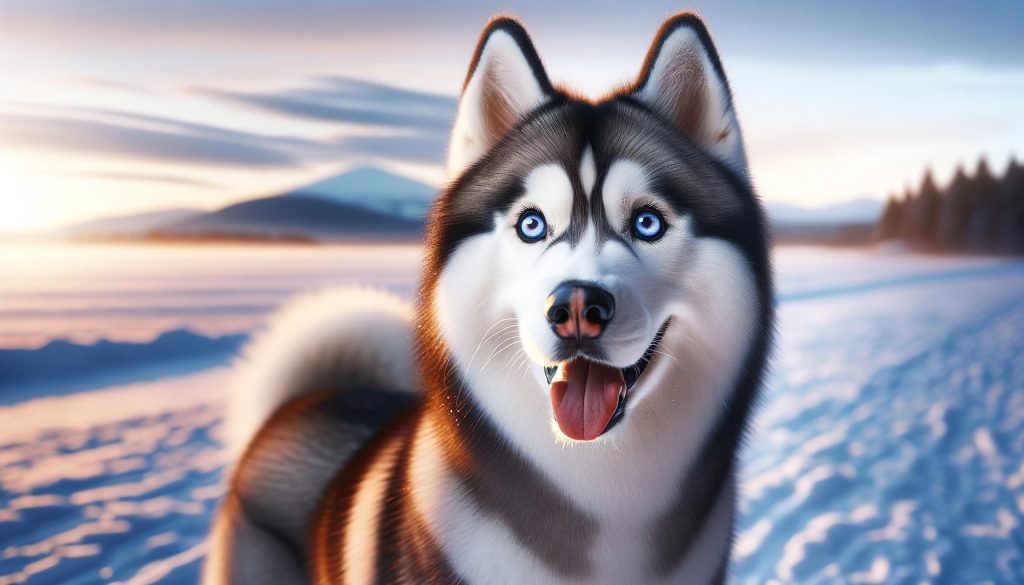
The Siberian Husky: A Distinct and Dynamic Breed
Introduction
The Siberian Husky is a breed that captivates with its striking appearance and dynamic personality. Originally bred by the Chukchi people of Siberia for sled pulling and companionship in harsh Arctic conditions, these dogs are renowned for their endurance and strength. This article explores the unique characteristics of Siberian Huskies, addressing common questions about their nature, care requirements, and intelligence.
Why Siberian Huskies Are So Special?
Siberian Huskies are special for several reasons. Their most striking feature is their appearance, characterized by a wolf-like look, vibrant eyes (often blue or multi-colored), and a thick, double coat. Beyond their beauty, they are known for their friendly and gentle temperament. Despite their formidable size and strength, they are often affectionate and good-natured, making them excellent companions. Additionally, their history as sled dogs in Arctic conditions demonstrates their incredible resilience and adaptability.
Why Are Huskies So Emotional?
Huskies are often described as “emotional” due to their expressive nature. They are known for being vocal, using howls and moans to communicate, which can sometimes be mistaken for being emotionally charged. Huskies also use facial expressions and body language to express their feelings, making them seem more emotionally expressive compared to some other breeds. This expressiveness is one of the traits that endear them to many owners.
Are Siberian Huskies High Maintenance?
Siberian Huskies can be considered high maintenance in certain aspects. Their thick double coat requires regular grooming, especially during shedding seasons when they “blow” their undercoat. They also have high energy levels, necessitating regular, vigorous exercise to keep them physically and mentally stimulated. Without adequate exercise, they can become bored and destructive. Furthermore, their independent nature can sometimes make training a challenge.
Are Huskies Hard to Train?
Huskies are intelligent but can be challenging to train due to their independent and stubborn nature. They respond best to positive reinforcement techniques, such as treats and praises. Consistency and patience are key in training Huskies. Early socialization and obedience training are important to instill good habits and manage their sometimes willful behavior. While they may not be the easiest breed to train, with the right approach, Huskies can be well-behaved and responsive.
Are Huskies Smarter Than German Shepherds?
Comparing the intelligence of Huskies and German Shepherds isn’t straightforward, as they excel in different areas. German Shepherds are known for their trainability and are often used in police and service work. Huskies, on the other hand, are known for their problem-solving skills and independent thinking, honed from their history as sled dogs. While German Shepherds may learn commands more quickly, Huskies’ intelligence is manifested in their ability to work independently and make decisions crucial for survival in harsh environments.
Health and Lifespan Considerations
The health and longevity of Siberian Huskies are vital considerations for potential owners. Generally, Huskies are a hardy breed with a lifespan of 12 to 15 years. However, they are prone to certain health conditions such as hip dysplasia, eye problems (including cataracts and progressive retinal atrophy), and skin issues. Regular veterinary check-ups and a healthy lifestyle are key to managing these risks. A balanced diet, adequate exercise, and preventive care are essential to maintain their health and well-being throughout their lives.
Siberian Huskies and Cold Climates
Siberian Huskies are uniquely adapted to cold climates, thanks to their thick double coat, which provides insulation against frigid temperatures. This adaptation makes them particularly well-suited to outdoor activities in cold weather, such as sledding and skijoring. However, their thick coat also means they can struggle in hotter climates. If living in warmer regions, it’s crucial to provide Huskies with a cool, shaded environment and plenty of water to prevent overheating.
Social Behavior and Pack Mentality
Huskies are known for their pack-oriented behavior, often thriving in the company of people and other dogs. This social nature means they generally do not do well in isolation and can become lonely and destructive if left alone for long periods. Integrating them into a household with other dogs or ensuring they have frequent human interaction can help mitigate these issues. Their pack mentality also means they often enjoy dog sports that involve teamwork, such as agility or obedience group classes.
Exercise and Mental Stimulation
Due to their high energy levels and working dog heritage, Siberian Huskies require ample exercise and mental stimulation. Long walks, runs, and play sessions are necessary to keep them physically fit and mentally engaged. They excel in activities that challenge them both physically and mentally, such as puzzle toys, scent work, and advanced training exercises. Without sufficient physical and mental exercise, Huskies can develop behavioral issues like excessive howling, digging, and escape attempts.
The Bond with a Husky
Building a strong bond with a Siberian Husky can be an incredibly rewarding experience. They are known for their loyalty and affection towards their owners. Building this bond requires time, patience, and consistent interaction. Training sessions, regular exercise, and quality time spent together are key components in developing a deep and lasting connection with a Husky. Their affectionate nature and playful spirit make them not just pets but integral members of the family.
Conclusion
The Siberian Husky is a breed that combines beauty, strength, and a unique personality. They require dedicated care, including regular grooming and exercise, and can be a challenge to train due to their independent nature. However, their intelligence, resilience, and affectionate temperament make them beloved companions. Understanding and catering to their needs are crucial for a harmonious relationship with these magnificent dogs. For the right owner, a Siberian Husky can be a loyal and rewarding companion, capable of providing both challenge and joy.
